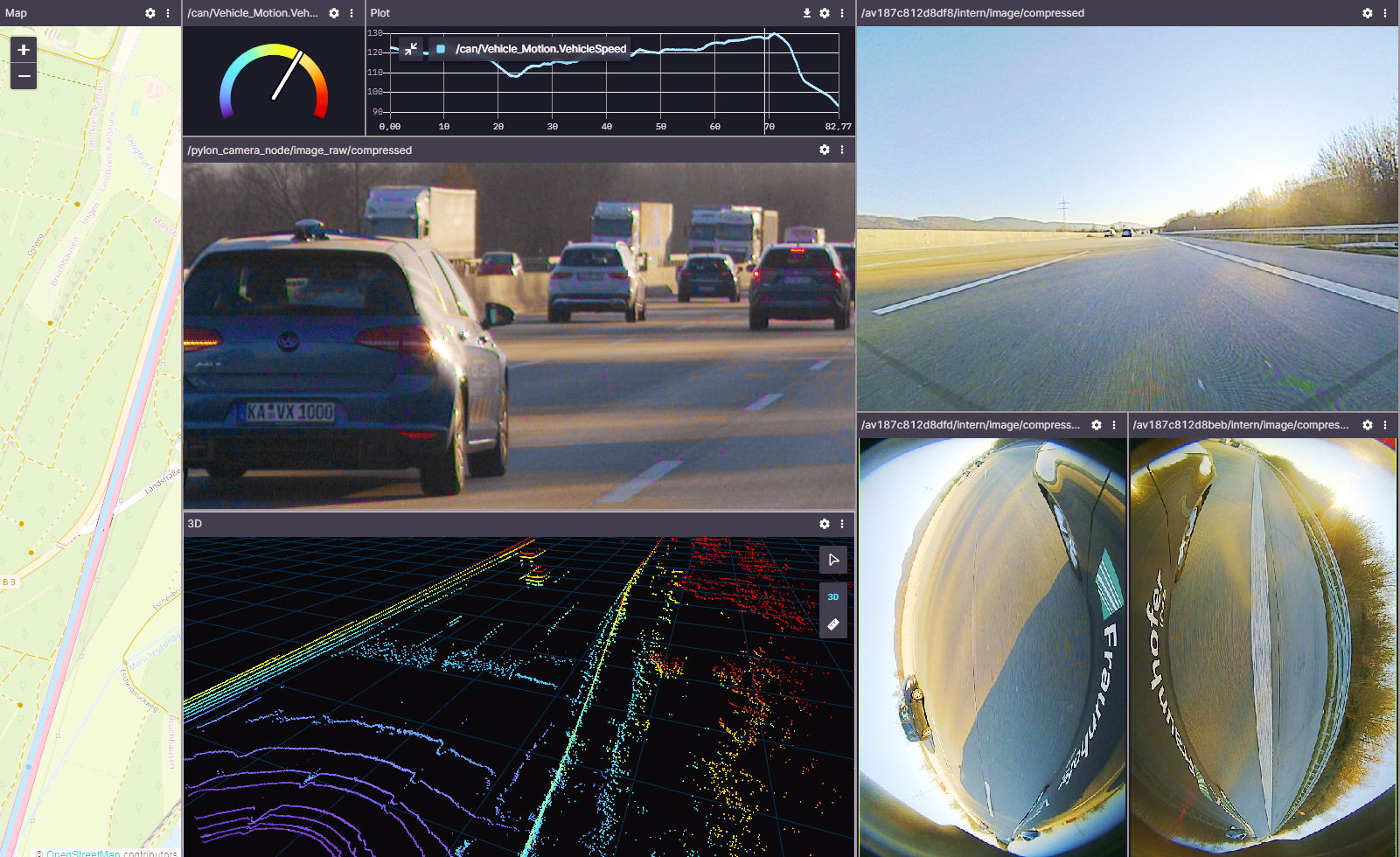
Sensor data collected on the vehicle side represent an essential basis for development. They allow the development and testing of procedures, the training and validation of machine learning (ML) procedures, and the derivation of environment models and map data.
Different data standards, such as ROS/ROS2, CAN, FlexRay, ADTF, RTMaps, OpenDRIVE or OpenLABEL have to be considered. In addition, the intelligent handling of sensor data is imperative: The unfiltered storage of raw sensor data generates an immense flood of data (e.g. terabytes of data for a few minutes), which can hardly be stored - let alone processed in a meaningful way. In addition, calibration and synchronization are sensitive parameters that influence the added value of data.
Intelligent annotation and selection as well as calibration and compression of data can help to identify relevant data, store only this data, and at the same time generate "ground truth" annotations or labels, for example object positions in the image.
In addition, the handling of personal data requires a consideration of data protection law, for example on the basis of DIN EN 62676-4, if image data is involved. On the one hand, there are trade-offs to be made between data requirements and privacy protection, and on the other hand, there are well-founded considerations to be made, for example, with regard to anonymization and its influence on the use of data for ML or artificial intelligence (AI) methods.
Fraunhofer Automotive supports these issues with the broad competencies of its partners: We offer the collection of data with our measurement and test vehicles, the processing, anonymization and enrichment/refinement of the data, as well as the selection of relevant scenarios from data of different sources. In addition, we provide support in clarifying data protection issues.
Relevant competencies for processing sensor data can also be found in the competence fields "Automation" and "Data Communication & Networks".
 Fraunhofer-Allianz Verkehr
Fraunhofer-Allianz Verkehr